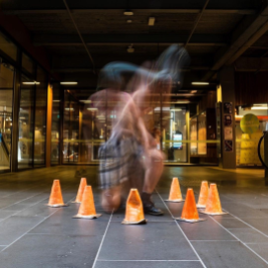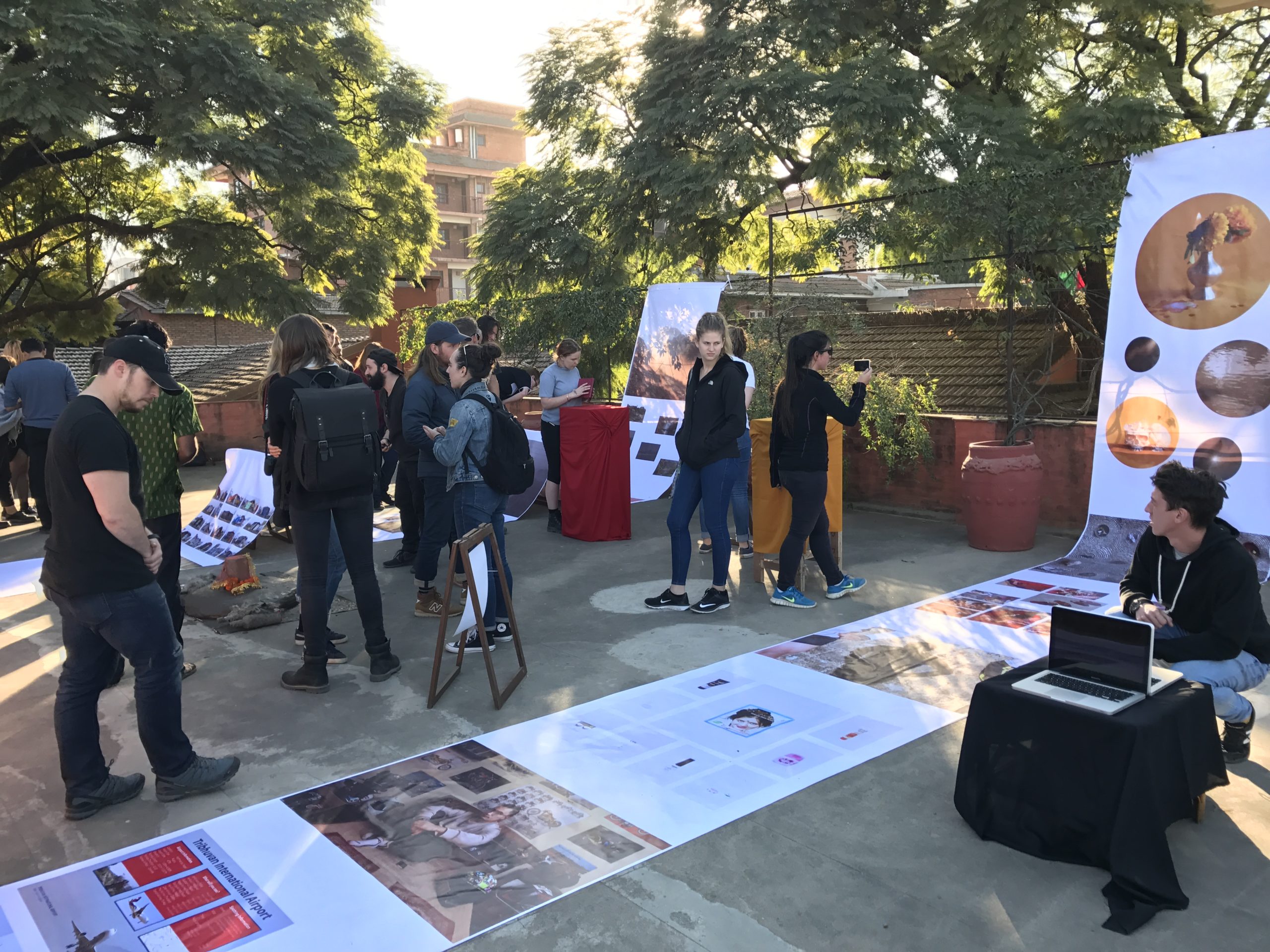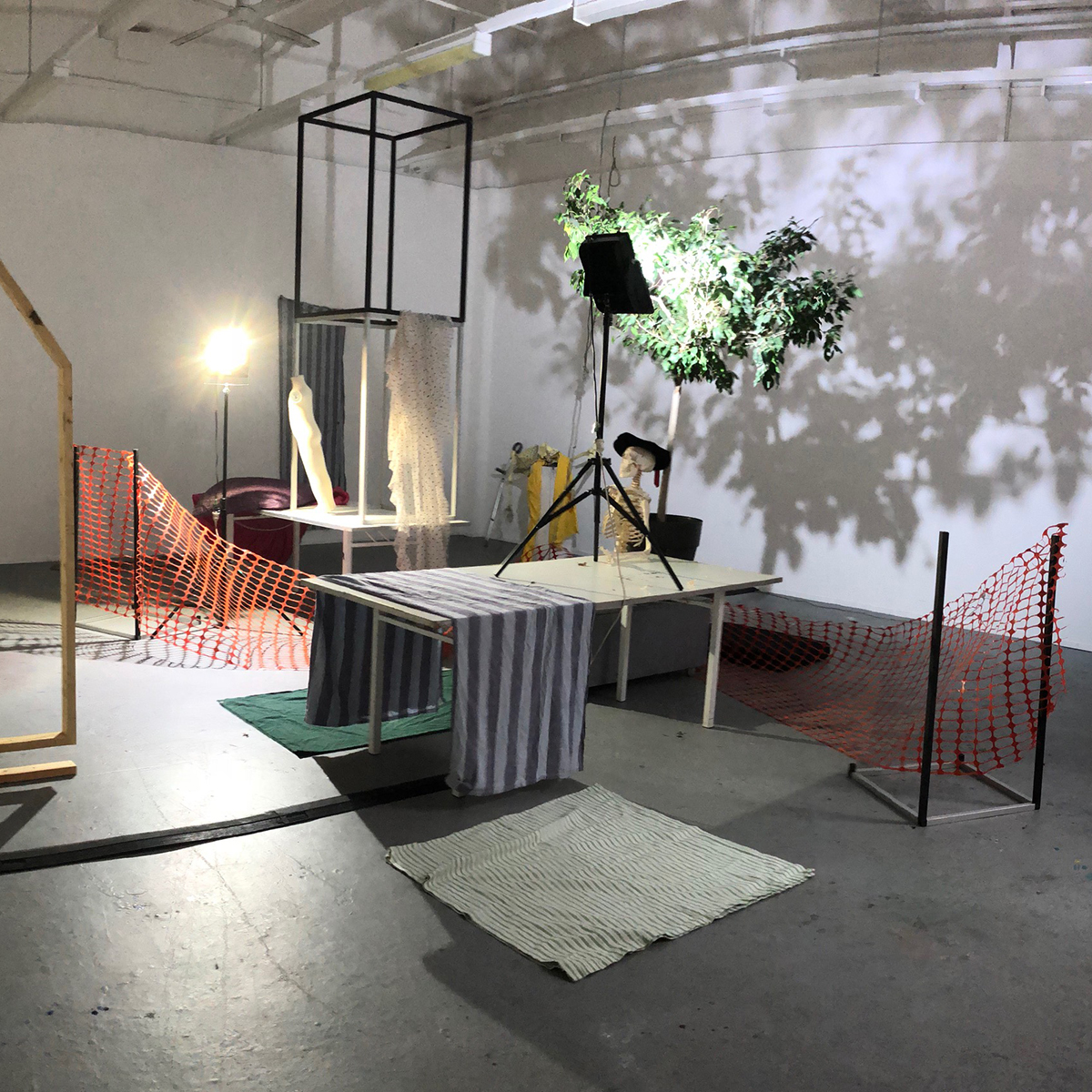School of Art - Flexible Term Courses 2022
Flexible Term Courses are those courses that are outside the standard Semester 1 and 2 dates. These may include the study tours, courses run over semester breaks, or intensives run throughout the year. Details of Flexible Term 2021 School electives are listed below.
To add a Flexible Term Course in Enrolment Online, choose the 'Additional Term' UGRD flexible term 2022 tab, select 'add classes', then 'class search' if looking for an elective or applicable year level or school option for BP117 students.
DO NOT SELECT SUMMER OR SPRING
For more information about a course, please contact the Studio Lead of the offering studio or the course coordinator if listed.
Please note: although we would like to offer all of the courses below, courses are subject to viability and may not run if numbers are too low.
Course Information
Offering Studio & Studio Lead
Summer Courses

Please be careful, 2020, Sarah Douglass, RMIT Public Art Trail
VART2027 Public Arts Project
This course introduces the practice of art in the public realm. Building on your existing studio practice, you will explore public art through temporary, permanent, performative, sculptural and social contexts, researching art situated outside galleries and institutions, and often integrated within landscapes and the built environment.
Through a series of lectures, public provocations, group discussions and prompted walks, you will review and critique how art can contribute to ideas of public space.
Your investigations and reflections will inform how your work will develop and intervene with public space, and on completion of the course you will have developed the foundations for an industry-ready public art proposal.
Note: If you need to catch up on workshop 2/3/4 or 5 you can use this elective course code to cover that.
* Grades will be published in early January which means it will not suit students completing their programs in 2022 and graduating at the December ceremony. However anyone using this course as their final credit points will be able to graduate in absentia in January in time to pursue further study (i.e Hons or Masters) in 2023 if they wish.

Doing Visual Politics Workshops in Kathmandu, 2016/2018
VART3668 Art Global Intensive 2: Doing Visual Politics – Creative Practice as Civil Action
Are you interested in understanding more about how your creative practice might have social relevance and local value? If so, you are invited to apply to participate in Doing Visual Politics: Creative Practice as Civil Action - a unique, trans-local intensive workshop running this November and December.
The most urgent question confronting us…is how to clear space for civil intention in the range of actions we perform daily.1
Aims:
The aim of the collective learning project is to explore how creative practices can meaningfully enact concern for our shared world. Specifically, we are interested in exceeding disciplinary boundaries and going beyond good intentions. We will connect our creative practice with forms activism by learning from political theory and considering how such practices can be understood as enacting civil action. Employing a collaborative and transdisciplinary approach at the intersection of photography, socially-engaged art, visual art, media, design, journalism, and creative writing this workshop will develop applied understandings of visual politics through real-world projects.
Overview:
In November and December 2022 the Doing Visual Politics Network is activating a trans-local, trans-disciplinary community of practice convening across sites in Narrm/Melbourne, Kathmandu and Dhaka.
The project brings together students, creatives, researchers from Australia, Bangladesh, and Nepal with a group of leading thinkers and practitioners for a distributed symposium in November, followed by practical, in-person workshops held locally in the three sites in December. This trans-local structure enables participants to produce creative responses relevant to their local communities and contexts while learning from international peers thinking through similar objectives in other locales.
Program Details:
Partners:
The project is a partnership between three internationally renowned institutions with shared social justice values; Pathshala South Asian Media Institute in Bangladesh, Kathmandu based visual activism platform photo.circle and the RMIT University School of Art. Following successful programs in Kathmandu in 2016 and 2018 the 2022 project is exploring this hybrid model with ongoing support from the Australian Government’s New Colombo Plan.
In Narrm/Melbourne the intensive will take place out of RMIT PlaceLab Brunswick, a new urban initiative which aims to connect communities, shape place, and take a radically different approach to research. Following preliminary site visits, we will work intensively to produce our site-specific projects for two weeks December 5th to 19th (primarily 5th to 16th with a public exhibition on 19th). The Narrm workshop will place particular emphasis on exploring what it means to practice on unceded Wurundjeri land while also contributing to the broader Creatives, Communities and Economies project.
Outcomes:
Project outcomes will all be publicly exhibited at the conclusion of the workshop in mid-December in the locations and communities in which they were produced, as well as shared online with the concurrent locations. Previous projects have culminated in books, zines, performances, public exhibitions, visual essays, films and online works.
Students & Staff:
The project would suit students (at any year level) from art, photography, design, media, games, communication and journalism, development studies, social and/or political science, philosophy, creative writing, or anyone interested in developing their understanding of the politics of creative practice. The RMIT academic staff leading the project are School of Art academics Alan Hill, Kelly Hussey-Smith and Marnie Badham, who will be joined by guest practitioner-mentors, postgraduate students and other RMIT researchers. International keynote speakers and local mentors will be confirmed in early October but will include renowned visual activist-scholars such as Shahidul Alam and NayanTara Gurung Kakshapti from our partner organisations.
Enrolment, Credit, Costs and Graduating:
RMIT students will receive credit by being enrolled in the 12cp elective VART3668 Art Global Intensive 2. They will also be allocated a New Colombo Plan grant which covers all the program delivery costs, including guest mentors and international collaborations. Grades will be published in early January which means it will not suit students completing their programs in 2022 and graduating at the December ceremony. However, anyone using this course as their final credit points will be able to graduate in absentia in January in time to pursue further study (i.e Honours or Masters) in 2023 if they wish. We expect to be able to offer up to 25 places for RMIT students. If there are more applicants than places we may need to run a selection process.
If you are interested in participating, please email Alan Hill (alan.hill@rmit.edu.au) stating your name, degree program (i.e Bachelor of Photography) and year level by COB Monday 10 October.
An information session will be held via Teams at 11:30am on Friday 7th October - Click here to join the meeting
1. Ariella Azoulay, Civil Imagination: A Political Ontology of Photography, 2015.
Mid Semester Courses - July

GREG CREEK, VISUAL FIELD SET-UP
VART1969 Drawing Intensive
This is an intensive course in drawing. It is designed to establish a sound foundation for articulating drawn visual imagery from both observed reality and concepts. This includes exploring fundamentals of drawing from the figure, the inanimate subject, spatial perspectives and an application of these elements in the context of ideas and process, notions of display and critical feedback.
The course is based within the genres of analytical drawing and visual field drawing and includes a self-directed Drawing project that will provide participants with the opportunity to develop resolved drawings combining elements from the previous experiences of the intensive as well as other approaches to making and installing from their own area of study. Theoretical and conceptual discussion is an ongoing component of the intensive in addition to videos, reading lists, feedback forms, documentation and group discussions.
Please find link to the course guide.